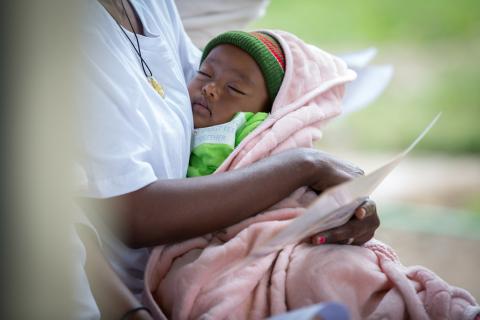Breastfeeding and infant feeding promotion and support in public health emergencies

Within the process of public health emergency preparedness (PHEP), promotion and support to breastfeeding and infant feeding assume high relevance. When a major humanitarian crisis or a natural disaster occurs, the issue of protecting the infant and young child feeding, namely infant feeding in emergency (IFE), seems to be a priority. Actually, the first solutions mainly concern supply and prompt delivery of breast-milk substitutes (BMS), that are carefully regulated by the World Health Organization (WHO) through a specific international code.
As broadly shown by ASSET, public health emergency of international concerns (PHEIC) are linked to several Science-in-Society (SiS) issues, and definitively breastfeeding and infant feeding do represent correct examples of this. Breastfeeding and infant feeding promotion during emergencies and disasters is in fact related to aspects of governance first and consequently to regulatory frameworks and law enforcement, as well as gender driver is recalled as per the female role of health promoter and caregiver through the entire life course.
The National Centre for Disease Prevention and Health Promotion of the Italian National Institute of Health hosted a training course (June 2018, 12th and 13th), in collaboration with Save the Children and UNICEF-Italy, on how to protect, promote and support breastfeeding and infant feeding in case of humanitarian emergencies and natural catastrophes. The two-day course aimed at promoting a wide competence on early childhood (aged 0-2) nutrition, both breastfed and not, as well as at activating broad preparedness networks among all stakeholders differently engaging in health promotion for women and children in conditions of natural catastrophe and humanitarian emergency.
The course was interesting for the multistakeholder approach adopted (participants were representatives of national associations, local authorities, and healthcare services and agencies) as well as for contents and methods developed:
- the new version (2017) of the Operational Guidance on Infant and Young Child Feeding in Emergencies released by the IFE Core Group was described;
- the specific preparedness program on breastfeeding by UNICEF was presented as well as guidelines elaborated by Save the Children were addressed to tackle the issue of protecting minors’ health in emergencies;
- the local plan elaborated by the Marino’s administration (Lazio Region; Italy) was discussed as an example of best practice at community level.
Other core elements within the ISS course were:
- resilience as a key skill to effectively overcome traumatic experiences as per surviving catastrophes and emergencies;
- governance overall, including the complex issue of donations for an efficient management;
- technical interventions to be addressed to fully or partially breastfed, and non-breastfed children, also in the matter of communication and counselling;
- needs’ assessment both in professionals and in population (children, parents, elderly);
- standardized procedures for monitoring and evaluation.
Using the world cafe methodology, eight working groups reasoned in three sequential rounds to what extent a synergic, cross-sectoral and coordinated partnership is required at different levels to achieve improved forms of IFE management.
